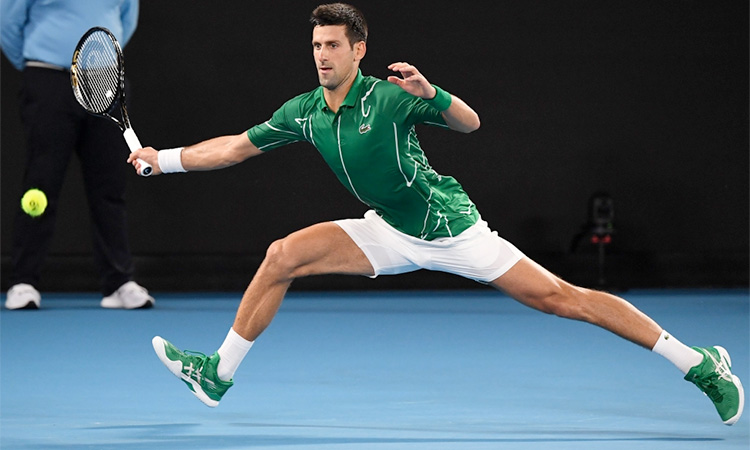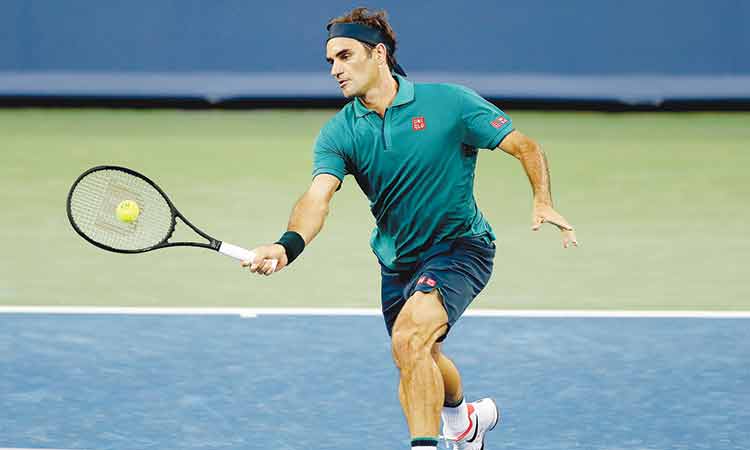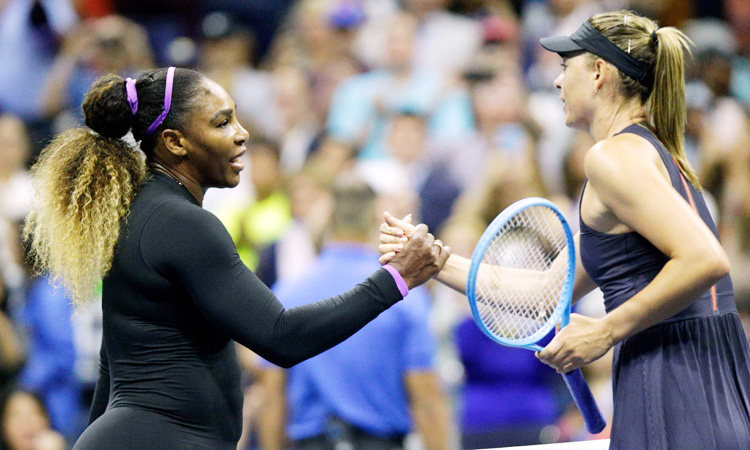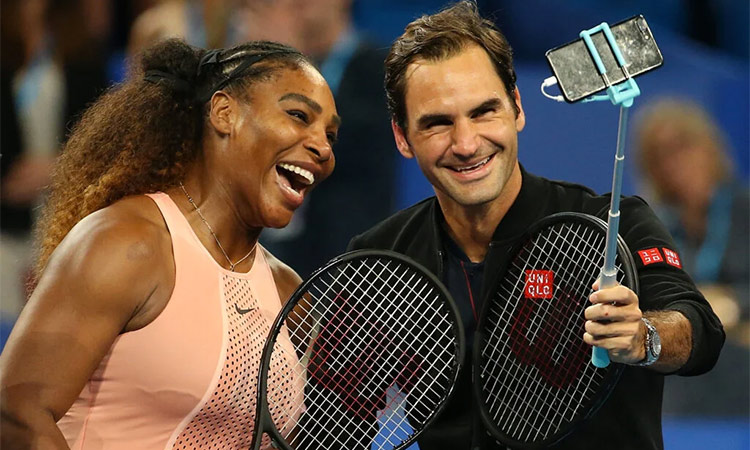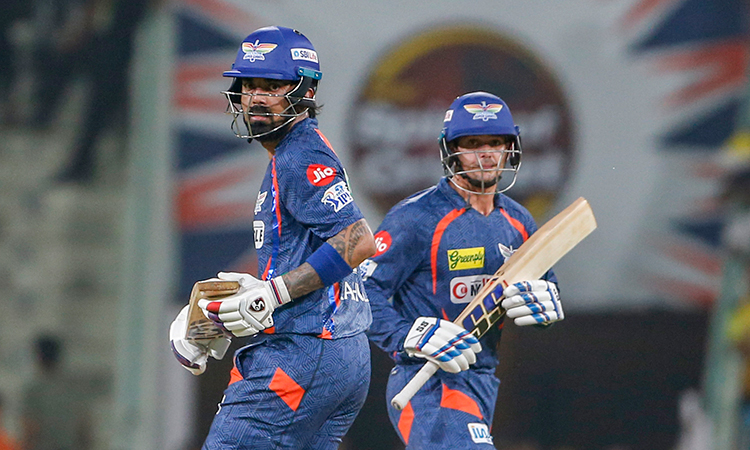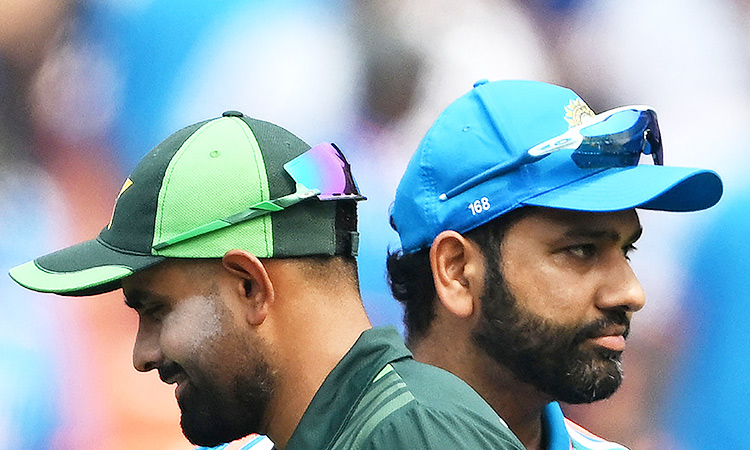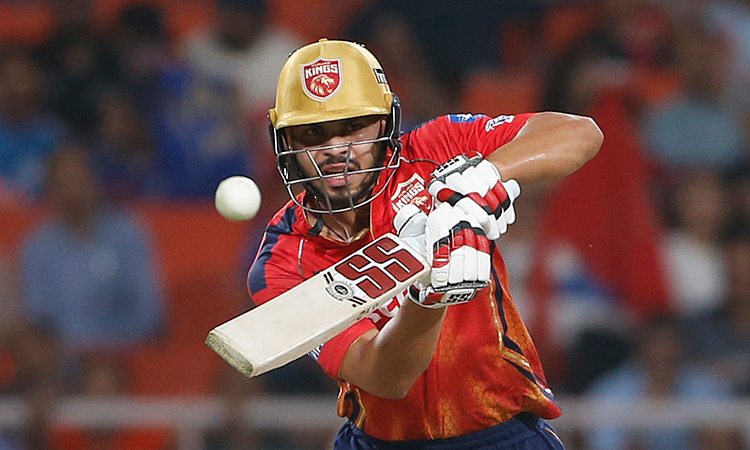Federer, Nadal, Barty and Serena cruise into last 16
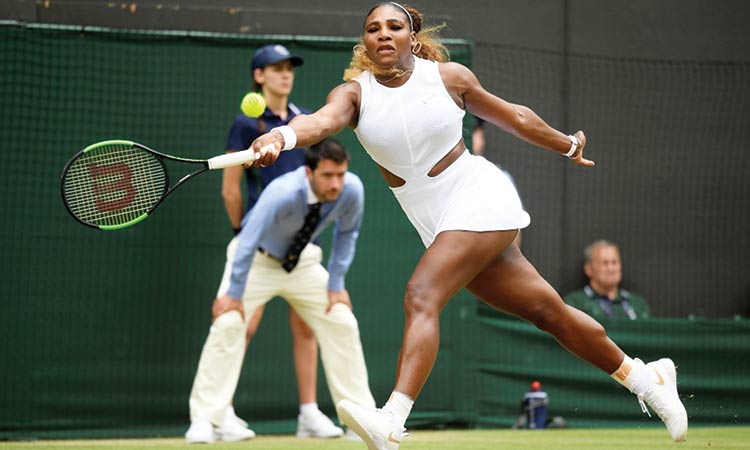
Serena Williams in action during her third round match against Julia Goerges at Wimbledon on Saturday. Reuters
Federer’s 7-5, 6-2, 7-6 (7/4) win over French 27th seed Lucas Pouille sets the Swiss second seed up against Italy’s 17th seed Matteo Berrettini for a place in the quarter-finals.
It will be Federer’s 17th appearance in the fourth round at Wimbledon, taking him ahead of Jimmy Connors on the all-time list.
Earlier, two-time Wimbledon champion Rafael Nadal had a much more enjoyable experience on Saturday than his previous match as he eased into the last 16 with a 6-2, 6-3, 6-2 romp over French veteran Jo-Wilfried Tsonga.
The ease with which Nadal made the fourth round for the ninth time was replicated on the women’s side by Ashleigh Barty -- who will be breaking new ground in appearing in the last 16 for the first time -- and Serena Williams.
Nadal, who embraced Tsonga fondly at the end in stark contrast to the chilly handshake he had with fiery Australian Nick Kyrgios in the previous round, said he was delighted with the manner of his victory describing every match as a battle.
“I was very happy,” said Nadal. “I played a great match from the beginning to the end.
Berrettini saved three match points to see off Diego Schwartzman of Argentina 6-7 (5/7), 7-6 (7/2), 4-6, 7-6 (7/4), 6-3.
On the women’s side, Barty and Williams could meet in a blockbuster quarter-final if they win their last 16 matches on ‘Manic Monday’.
Two of the top 10 seeds did bow out, Dutch fourth seed Kiki Bertens and American ninth seed Sloane Stephens losing to Czech Republic’s Barbora Strycova and Britain’s French Open semi-finalist Johanna Konta respectively.
While Barty will be in new territory playng singles at Wimbledon in the second week for the first time, for Williams it is the 16th time.
Barty overwhelmed British wild card Harriet Dart 6-1, 6-1 while 37-year-old, seven-time champion Williams produced her most convincing display in dispensing with German Julia Goerges 6-3, 6-4.
Barty, bidding to become the first Australian Wimbledon women’s champion since Evonne Goolagong Cawley won her second title in 1980, will play unseeded American Alison Riske for a place in the last eight.
She is also the first Australian woman to make the second week since 2010.
“That was really good,” said Barty. “I served really well and getting out of the love 40 game was massive.
“Incredible it is a first for me (to be in the last 16), new territory for me.”
Williams goes on to face Spain’s Carla Suarez Navarro for a place in the quarter-finals.
Eleventh seed Serena, who defeated Goerges in last year’s semi-finals, is bidding to equal Margaret Court’s all-time record of 24 Grand Slam titles.
“It’s been an arduous year for me, so every match I’m hoping to improve tons,” said Williams, who had a knee problem which affected her season.
“Every time I get out there, I try. I’m getting a really late start but all that matters is that I’m still here.”
Meanwhile, former world number one Andy Murray’s hopes of emulating Michael Stich in adding a Wimbledon men’s doubles title to his singles crowns ended on Saturday as he and Pierre-Hugues Herbert exited in the second round.
The 32-year-old Scotsman, who landed the Queen’s doubles title a fortnight ago in his first tournament back after “life-changing” hip surgery, and his French partner were outclassed by the sixth seeded Croatian duo of Nikola Mektic and Franko Skugor who won 6-7 (4/7), 6-4, 6-2, 6-3.
For Herbert, it represents a losing gamble as he had angered long-time partner Nicolas Mahut -- with whom he won all four Grand Slam titles -- in choosing to play with Murray after apparently originally saying he would focus on singles only. Mahut has made the third round with new partner Edouard Roger-Vasselin.
Agence France-Presse
